Numer8: From space to sea, solving for fisherfolk—numerically
by Vishes Jena and Maansi Sharda
Aug 20, 2021
6 min
The seafood supply chain in India is highly disintegrated, complex, and non-reliable. Consequently, fisherfolk face a range of issues that affect their livelihood. This blog highlights the journey of Numer8, a data science-focused startup that helps fisherfolk defend against climate change and build a resilient yet profitable seafood business for themselves.
This blog is about a startup under the Financial Inclusion (FI) Lab accelerator program’s fourth cohort. The Lab is supported by some of the largest philanthropic organizations across the world – Bill & Melinda Gates Foundation, J.P. Morgan, Michael & Susan Dell Foundation, MetLife Foundation, and Omidyar Network.
According to the World Wildlife Fund (WWF), 3 billion people worldwide rely on seafood for their dietary needs. Marine fisheries generate employment for millions of people across the globe. In India, the seafood industry employs about 5 million fisherfolk and laborers, who face several issues that remain unresolved for various reasons, as illustrated in the image below.
The resolution of these problems offers an opportunity to improve the lives of fisherfolk. However, only a few platforms are willing to build solutions for marine fisherfolk. One of these is Numer8, a startup that strives to analyze the problems fisherfolk face and uses its data analytics capabilities to develop scalable solutions for the sector.
The eureka moment
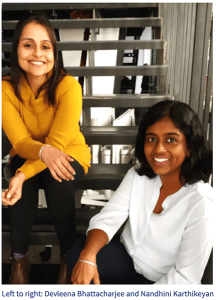
Devleena met Nandhini Karthikeyan, the current CTO of Numer8, during a machine learning course. Their shared perspectives and passion for solving global issues helped them conceive Numer8.
Numer8 launched its operations in 2017. Its first product, “QResq,” was a geographic information system (GIS) application that collected data on natural disasters and provided a multidimensional outlook on the consequent geo-critical changes. While studying the effects of disasters like the Kerala floods of 2018 and cyclone Fani, the Numer8 team was shocked by the disproportionately colossal loss of life and property due to climate disasters.
Coastal disasters, in general, threaten to demolish the livelihood of families associated with marine fisheries. Climate Central further projects that India could face coastal floods every year by 2050. Cumulatively, such disasters would affect more than 36 million people. This frightening prediction was an eye-opener for the duo. They decided to invest all their time and resources in supporting the livelihood of marine fisherfolk. This investment led to their second product, the “Ofish” mobile app, which quickly gained prominence. “Ofish” provides a data-driven analysis of hyperlocal weather, sea tides, and fishing conditions to help fisherfolk with market linkages. The Numer8 team is now hard at work to build and integrate a portfolio of solutions to serve the fisherfolk holistically.
Numer8’s unique pitch
The Numer8 team conducted primary and secondary research to delve deeper into issues that marine fisherfolk face in India. They identified four significant challenges that, if addressed, hold the potential to improve the livelihoods of marine fisherfolk. The graphic below provides a snapshot of these issues.
In 2018, Numer8 partnered with the National Aeronautics and Space Administration (NASA) and the European Space Agency under the Copernicus Master’s program. These partnerships helped the team to access geospatial data, especially for the Indian coastline, and offer timely and accurate results. These partnerships allow Numer8 to offer timely and accurate alerts on fishing and natural disasters, which was the initial focus of “Ofish.”
In 2019, the World Food Program (WFP) selected Numer8 as a part of its technology-based program on food security solutions organized in Sri Lanka. As a part of the program, Numer8 conducted a hunger management pilot and discovered that most digital food security solutions focus on agriculture or inland fisheries. The marine fisheries sector had a severe lack of technology-assisted global food security solutions. MSC estimates that India’s 5 million marine fisherfolk cumulatively generate an income of INR 322 billion (~USD 4.32 billion) annually. Numer8 decided to safeguard the income and livelihood of marine fisherfolk through data-driven insights to support supply-chain linkages and offer formal financial assistance and business advisory, among others. Besides helping fisherfolk improve their livelihood, Numer8 also seeks to operate at the ecosystem level and address critical sectorial issues, as outlined below.
The impact of Numer8 on LMI fisherfolk
Numer8 helps low- and middle-income fisherfolk move toward profitable and sustainable fishing practices. To date, the startup’s “Ofish” product has onboarded and benefitted more than 2,000 fisherfolk, empowering them to improve their livelihoods.
During the COVID-19 pandemic, Numer8 offered advisory services for fisherfolk to increase their net income. It suggested ways to reduce operational costs and increase their sales margin.
The challenges
The image below summarizes the challenges Numer8 faced during the design of its products.
COVID-19: An unexpected catalyst
When the pandemic first struck, Numer8 had anticipated an impact on its operations. The team turned this adversity into opportunity—they devised and piloted new ideas, such as market linkage solutions for fisherfolk. The pilot sought to identify and form partnerships with forward and backward players in the supply chain like raw material suppliers, retailers, and customers. Devleena and her team took to the streets to sell fish to upgrade their approach to design thinking and understand the on-ground dynamics of the supply chain.
However, the second wave of COVID-19 dented the startup’s business revenues and obstructed its operations. Pandemic-induced lockdowns and travel restrictions led to a severe market disconnect. Despite these challenges, the team managed to bounce back and revive the business after the government eased restrictions on movement.
Support provided by the Financial Inclusion (FI) Lab
A collaborative effort of CIIE.CO and MSC, the FILab organized boot camps and diagnostic sessions and offered mentoring support and technical assistance to help Numer8 identify challenges and build robust strategies to overcome them. MSC’s help improved the overall user interface for “Ofish.”
MSC also helped Numer8 understand the financial needs and capabilities of fisherfolk, their socio-economic footprint, and other financial trends based on research across coastal Indian states. Based on this research, we designed a credit assessment framework that identifies the potential credit needs of fisherfolk based on basic information provided by them such as their past credit behavior, asset ownership, and alternate data, among other parameters. The framework assesses the creditability of fisherfolk based on. This assessment will enable Numer8 to extend formal credit to fisherfolk and other relevant players in the supply chain who lack proper documentation to substantiate their income and assets. This tool will provide another channel for Numer8 to scale up its business model.
The next steps
Numer8 plans to strengthen its geographical footprint through a hub-and-spoke model. It will continue to maintain a central workforce in India to develop “Ofish”. Simultaneously, local teams will customize and provide geography-specific services across different countries like the Philippines and Sri Lanka. The team has been conducting pilots in Bangladesh, Indonesia, and Papua New Guinea.
In the medium term, Numer8 will set up a digital marketplace to help fisherfolk connect with relevant players in the supply chain, such as input suppliers and retail buyers or wholesalers. The team believes that educating fisherfolk on the relevance of social and economic factors will drive the adoption of technology. Through community-driven workshops, Numer8 plans to provide financial education to fisherfolk, especially fisherwomen, on various market offerings and government plans and subsidies by partnering with relevant players. We hope that Numer8 achieves its objectives and creates its intended impact soon.
This blog post is part of a series that covers promising FinTechs that are making a difference to underserved communities. These startups receive support from the Financial Inclusion Lab accelerator program. The Lab is a part of CIIE.CO’s Bharat Inclusion Initiative and is co-powered by MSC. #TechForAll #BuildingForBharat
Written by
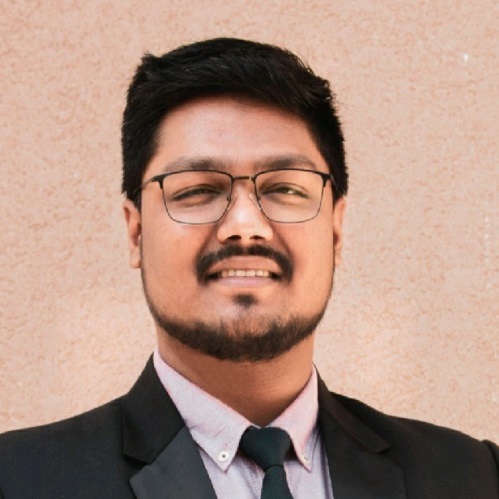
Vishes Jena
Assistant Manager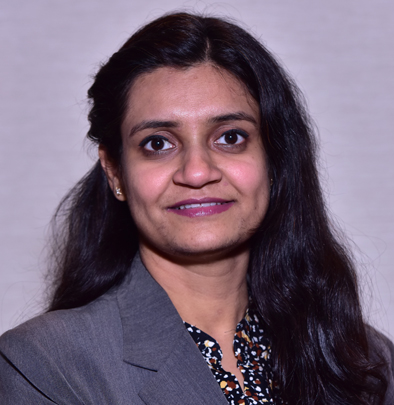
 by
by  Aug 20, 2021
Aug 20, 2021 6 min
6 min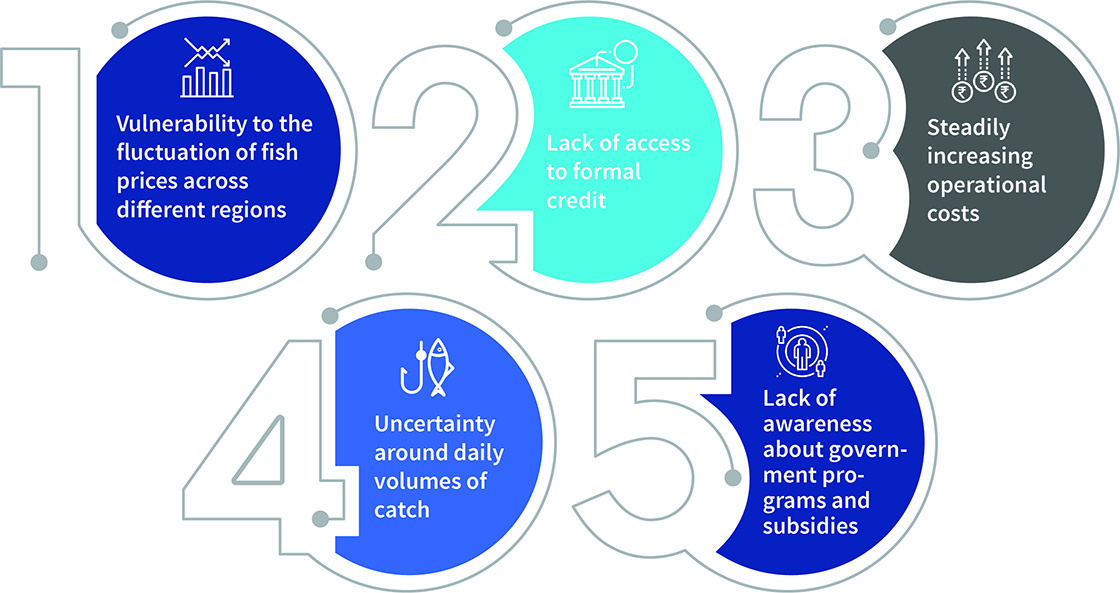
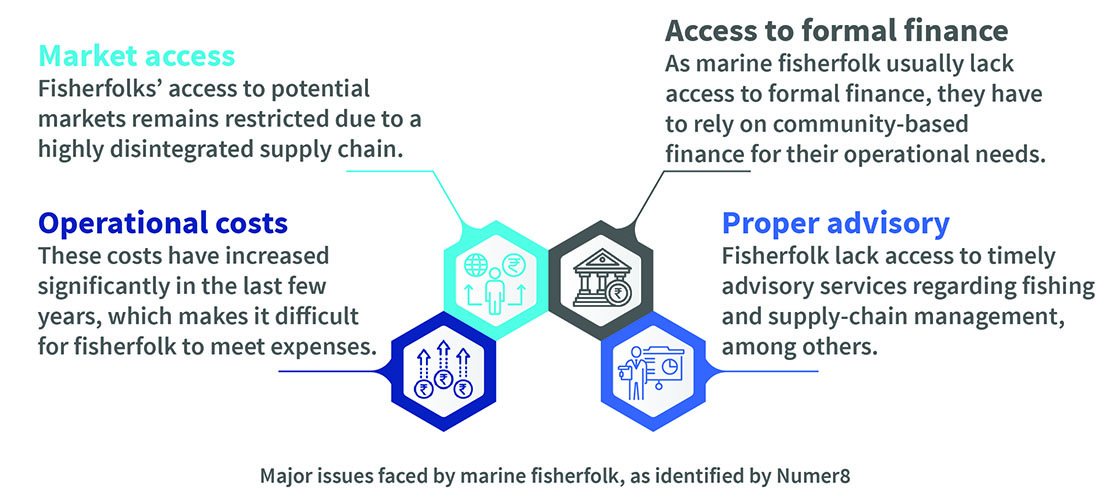
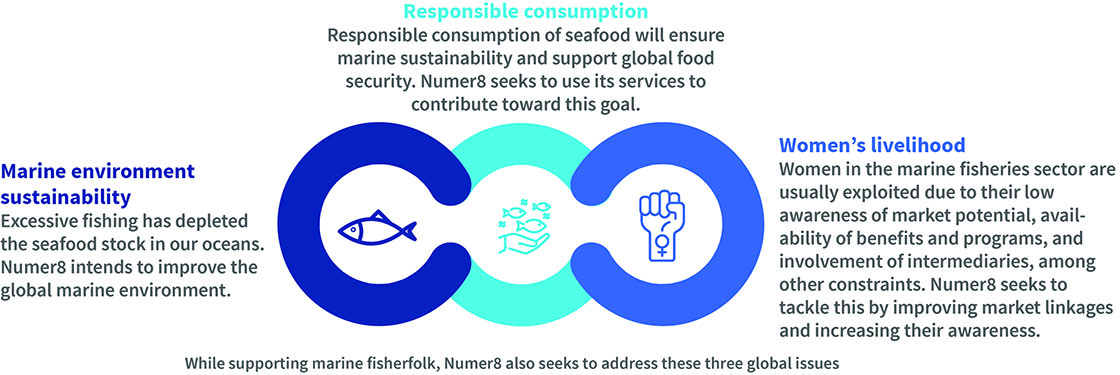
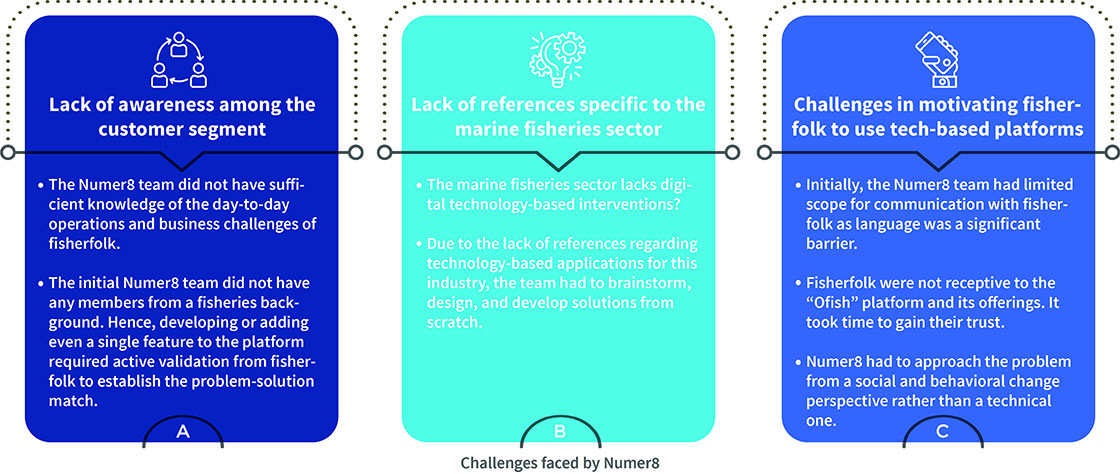
Leave comments